Everyone says they are worried about hate crimes. But Australia’s laws to combat them are all over the place
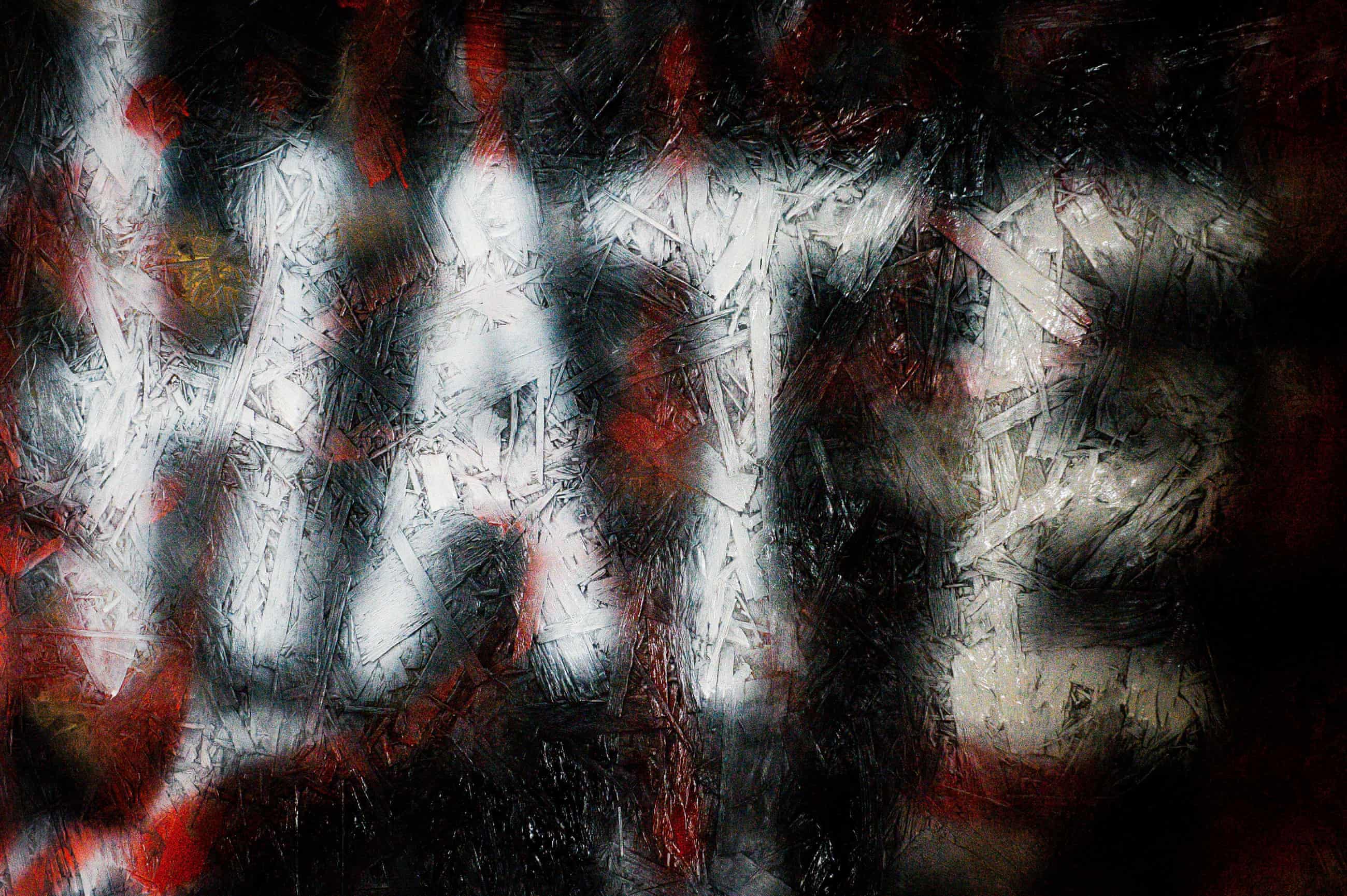
Some state police forces have specific laws and units relating to hate crime, others have neither,Experts say a national definition is neededFollow our Australia news live blog for latest updatesGet our breaking news email, free app or daily news podcastHate crimes have long been debated in Australia but the war in Gaza and the rise in reports of antisemitism and Islamophobia have thrust the laws designed to punish these crimes into the political spotlight,The Australian federal police commissioner, Krissy Barrett, has gone as far as saying new national hate crime laws may need to be strengthened,So how many of these crimes have resulted in police charges across Australia? And how differently is a report of a hate crime treated in each jurisdiction?In the wake of governments passing new laws – along with concerns about the accuracy of data about antisemitic incidents reported by New South Wales police and some states taking new approaches to the issue – Guardian Australia set out to explore hate crime,The picture that emerged was complex.
While some state or territory police forces have specific laws and units relating to hate crime, others have neither.In some cases, hatred or prejudice against a group was considered an aggravated factor in sentencing people found guilty of other offences, such as assault.Guardian Australia collated statistics from police, court and government sources – where available – on specific hate-crime offences in each jurisdiction and the number of times they’ve been used.Some agencies did not provide such information or said it was not collected.In some cases, incomplete data was provided.
In total, more than 435 charges relating to hate crimes have been identified from the available data since 2020.It’s unclear how many of these resulted in convictions.This is a fraction of the total number of complaints – not all of which would constitute crimes – recorded by NSW police alone.It’s also far less than reports made to databases such as the Islamophobia register or the Executive Council of Australian Jewry, which log specific incidents against various groups, during that period.And some police forces appear to be doing more than others to charge people over hate crime.
Nicole Asquith, a professor of policing at the University of Tasmania, says a national definition of a hate crime is needed.“If we’ve got people [in Queensland] threatening somebody … who’s in Victoria, then which definition do we use?” she says.“I think we do desperately need some kind of consistency across jurisdictions.”Sign up: AU Breaking News emailLast December a Senate inquiry into rightwing extremism movements recommended the Albanese government consider establishing a broader nationwide hate crimes database.As part of this, it would adopt a “nationally consistent definition” of what constitutes a hate crime.
Asquith agrees Australia needs to improve tracking of these crimes but said a national database would hinge on the available data from police,But no such database has been established,The debate over the correct definition of a hate crime continues,There are commonwealth offences that can be prosecuted across the country, which have most commonly related to the AFP-led special operation Avalite, set up last December to target antisemitic attacks,According to a presentation made by the AFP at an international counter-terror conference in September, the operation has received 1,367 reports – 101 of which remain under investigation.
Seven people have been charged under the operation,One of the issues with collecting data on how hate crimes are handled in each jurisdiction is the lack of nationally consistent legislation,In the cases of the Northern Territory, South Australia and Tasmania, no specific hate crime offences exist under legislation,Instead – and in line with most other states – such motivations are considered “aggravating factors” during the sentencing of other offences, which can lead to more severe penalties,Yet some jurisdictions are laying more charges than others.
Between 1 January and 30 September 2024, Queensland police laid 125 charges for vilification offences – relating to 69 alleged offenders – according to data provided to Guardian Australia,Of those, 58 relate to the alleged display, distribution or publishing of a prohibited symbol – which became an offence in the state last year,Australian Capital TerritoryUnder the ACT criminal code, it is an offence to intentionally carry out a threatening act that incites hatred, revulsion, serious contempt or severe ridicule of a person or group of people on the grounds of disability, gender identity, HIV/Aids status, race, religion, sex characteristics or sexuality,The territory also prohibits public displays of Nazi symbols,Vilification is also unlawful under the ACT Discrimination Act.
Complaints relating to discrimination and vilification can be made to the ACT Human Rights Commission, which may refer complaints relating to discrimination and unlawful vilification to the ACT’s civil and administrative tribunal,New South WalesIn NSW, it is illegal to threaten or incite violence on the grounds of race, religion, sexual orientation, gender identity or intersex or HIV/Aids status since laws came into effect in 2018,In February, the NSW government passed a package of tougher hate crime laws designed to respond to the escalation of antisemitic incidents,The new and expanded offences included displaying Nazi symbols on or near synagogues and Jewish schools, and intentionally and publicly inciting racial hatred,Under the state’s sentencing act, an aggravating factor that must be taken into account is whether the offence was “partially or wholly motivated by hatred for or prejudice against a group of people to which the offender believed the victim belonged (such as people of a particular religion, racial or ethnic origin, language, gender identity, sexual orientation or age, or having particular variations of sex characteristics or a particular disability)”.
Northern TerritoryThere is no specific offence regarding hate crime in the NT.But hate against a group of people can be considered an aggravating factor in sentencing criminal behaviour.QueenslandThere are two types of vilification under Queensland law – unlawful vilification (a civil matter) and serious vilification.Last year, new hate crime laws moved serious vilification into the criminal code and imposed a higher penalty, while a ban on the Nazi hate symbol also came into effect.South AustraliaSA does not have defined hate crime legislation but hate motivations are considered aggravating factors during sentencing.
The Racial Vilification Act addresses inciting hatred, ridicule or contempt towards a race (by threatening physical harm/damage to property to a person or group, or inciting others to threaten physical harm/damage to property), while the Sentencing Act allows judges to impose harsher penalties if any substantive criminal offence is motivated by prejudice against protected characteristics.There are also summary offences that can be linked to “an element of hate”, including the use of the Nazi salute or Nazi symbols, which carries a maximum penalty of $20,000 or imprisonment for 12 months.TasmaniaThere is no specific offence regarding hate crime in Tasmania.When an offender has been motivated, to any degree, by hatred or prejudice based on race, the court is to take this into account as an aggravating circumstance in sentencing.VictoriaNew serious vilification laws came into effect in Victoria in September.
They include inciting hatred or making physical threats against a person or group because of protected attributes.The threat offence has a maximum penalty of five years’ imprisonment.In 2023, laws banning people displaying or performing Nazi symbols and gestures also came into effect.The state’s Racial and Religious Tolerance Act will also be repealed next year when new civil protections take effect, according to the Victorian Equal Opportunity and Human Rights Commission.Western AustraliaThere are 11 hate crime related offences in the state, including offences relating to the Nazi symbol and salute, and the possession of racist material.
The offences with the toughest penalties are “conduct to incite racial animosity or racist harassment” and “possession of material for dissemination with intent to incite racial animosity or racist harassment”, both of which carry maximum penalties of 14 years’ imprisonment,But despite concerns over hate crimes and hate speech, only two police forces have a dedicated hate crime unit,NSW is one of them,Statistics provided by the NSW Bureau of Crime Statistics and Research (Bocsar) show there were 11 charges relating to the offence of “threaten or incite violence on grounds of race, religion, sexual orientation, gender identity or intersex or HIV/Aids status” since 2020,Only three of those nine cases resulted in a guilty finding for that charge.
In the other six, the charges were withdrawn.Guardian Australia has since confirmed that a man pleaded guilty last month to publicly threatening or inciting violence on the ground of gender identity.Sign up to Breaking News AustraliaGet the most important news as it breaksafter newsletter promotionMeanwhile, since last year more than 30 people have been charged with more than 140 offences under Strike Force Pearl, which was set up to investigate antisemitism.Adding further complexity to the NSW statistics are answers that police provided to a parliamentary committee that reveal the force is collecting data on the number of complaints it’s receiving categorised by “victim” of hate.It said that 112 “legal actions” started in 2020 in relation to hate crimes but did not provide data for other years.
Reports of hate crime and hate incidents, which are categorised as hate-motivated behaviour that may not constitute a crime, were increasing before the war in Gaza began, the NSW police responses to the questions on notice reveal.Jennifer Hastings, a senior policy officer at NSW police, said that these reports were increasing across victim groups, and attributed the increases to improved training for officers.“We also saw in 2023, for example, statistical spikes depending on the world event,” Hastings told the committee in July.“In quarter one, LGBT groups were the highest incident single group reporting because of WorldPride, the rainbow story time sort of pushback on those things.The Indian population had a spike in Q2 because of the Khalistan referendum.
”In July, Western Australia police became the second force to have its own dedicated unit examining hate crime-related offences.There are 11 different offences that can be charged under state law – including those regarding Nazi symbols and the possession of racist materials.Although WA police did not provide data about prosecutions, a NSW Law Reform Commission report said it examined information – provided by the Western Australian Office of Crime Statistics and Research – regarding four vilification offences in that state.According to the report, there were 52 proven charges regarding those WA offences between December 2004 and July 2024.In Victoria there have been 14 charges under the state’s Racial and Religious Tolerance Act in the five years to June 2025, data provided by the state’s Crime Statistics Agency shows.
Two prosecutions have also been launched under serious vilification laws in the Australian Capital Territory since 2020, police data shows,While there has been a push to create a national hate crime database, experts have raised concerns over how the data would be collected in the first place,In Victoria, a 2021 parliamentary inquiry recommended that the state government make it mandatory for police to record prejudice-motivated crime,The government supported the recommendation in principle at the time, and said it would carefully consider it,A government spokesperson declined to comment on whether this recommendation had been acted on when asked by Guardian Australia.
In September NSW police admitted to wrongly categorising a “significant” number of incidents as antisemitic, including anti-Palestinian graffiti and verbal abuse of pro-Palestine protesters,Prof Rebecca Wickes, the director of Griffith University’s criminology institute, says it’s inherently difficult to capture accurate data about things like hate crimes,“But a lot of things are hard,” Wickes says,“Domestic violence is hard, cybercrime is hard … it doesn’t mean we don’t do it, and we don’t develop the very best system to do that,” Wickes says,“It’s not a stretch to say that having a really good understanding of how many prejudice incidents there are across the country gives us a real sense of our social cohesion in Australia.
“We need to understand when this social fabric is weakening because it’s really important to our national security … it’s an indication of when things are not right,”Do you know more? Contact nino,bucci@theguardian,com or adeshola,ore@theguardian.
com
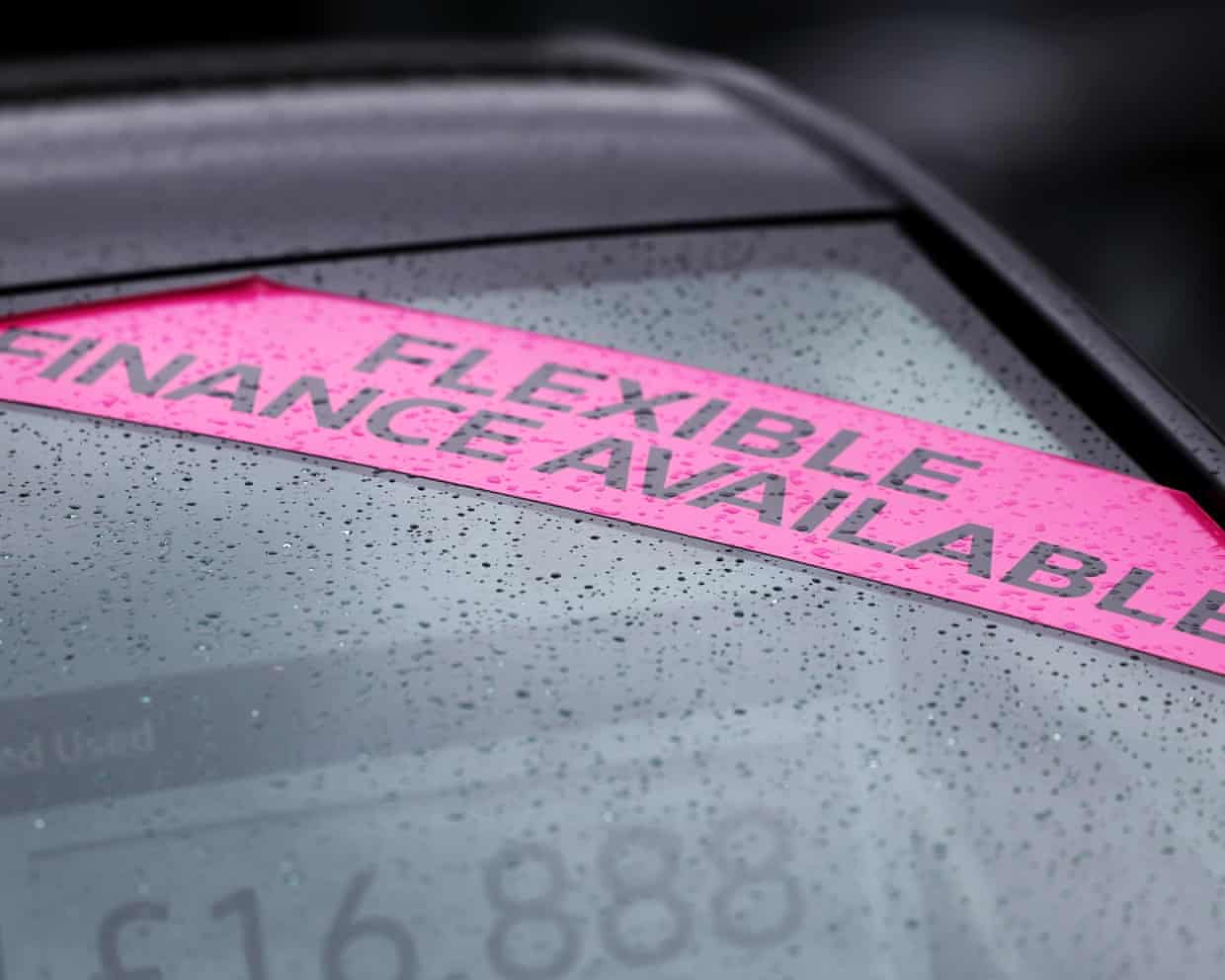
Victims robbed of £4bn in ‘insulting’ car loan redress scheme, say claims firms
Victims of the car loans scandal could miss out on more than £4bn in compensation if the City regulator ploughs ahead with plans for an “insulting” interest rate in its redress scheme, consumer groups and claims firms say.The Financial Conduct Authority (FCA) has been accused of offering a reduced rate of interest which will be added to compensation from banks for borrowers caught up in the car loan commissions scandal.Claims law firms and consumer groups say borrowers should be offered the same terms as Marcus Johnson: the sole driver whose case was upheld by the supreme court in a landmark case in August.While the terms of the final payout are sealed, Johnson is widely believed by industry experts to have received about 7% interest on his compensation package, after judges ordered the parties to negotiate a “commercial rate”. But the watchdog has proposed a rate of 2
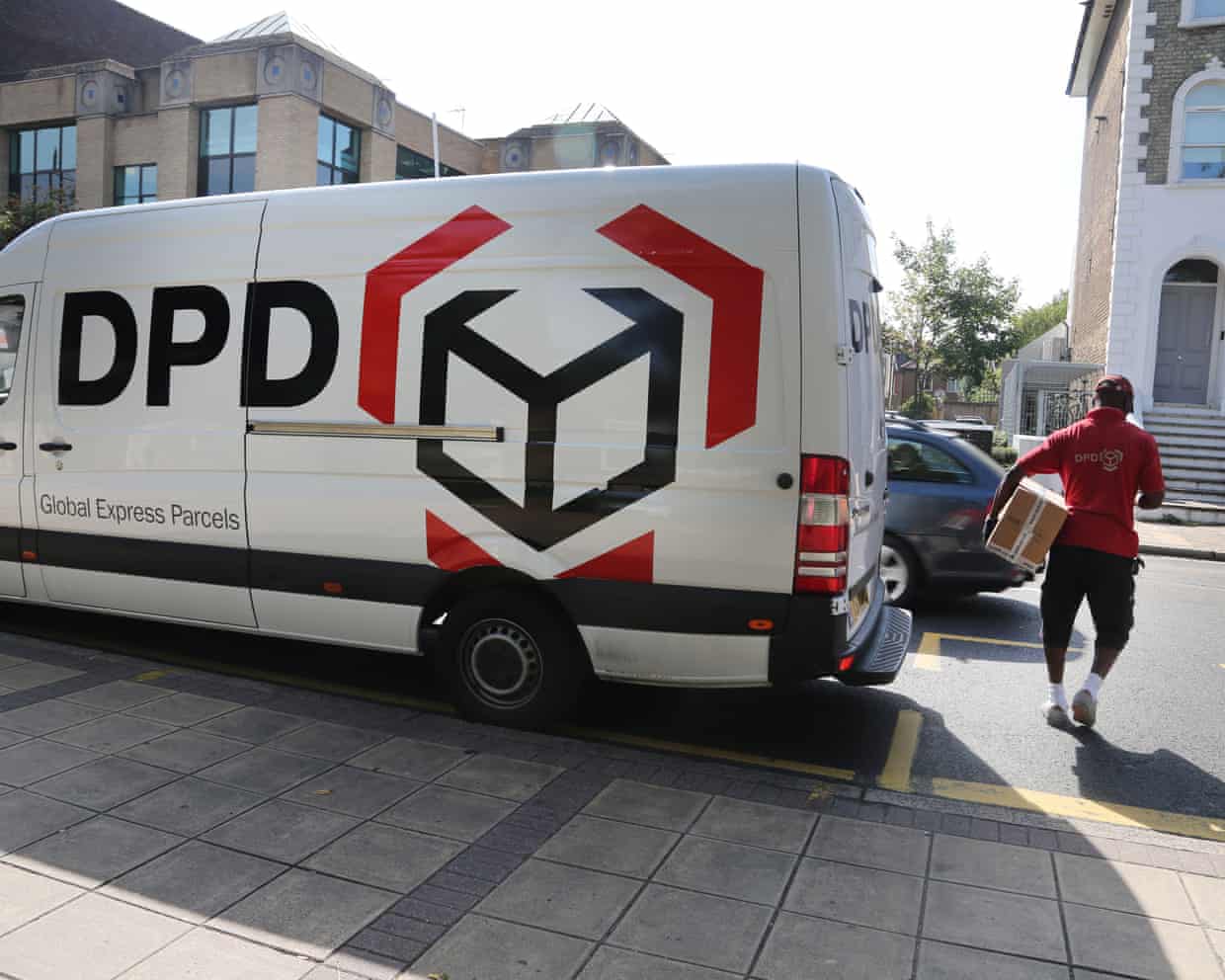
Delivery firm DPD accused of ‘revenge’ sacking drivers who criticised pay cuts
The delivery firm DPD has been accused of “revenge” sackings after workers spoke out against a plan to cut thousands of pounds from their earnings, including their Christmas bonus.The company, which reported pre-tax profits of nearly £200m last year and plays a significant role in the festive rush to have gifts and parcels delivered, has even threatened to withhold money from some staff to pay for the cost of replacing them, the Guardian has learned.DPD confirmed it had dismissed workers after an estimated 1,500 self-employed drivers chose not to take on any work for a three-day period in protest at the plans.It emerged earlier this month that the company had told workers it planned to cut 65p from the rate it pays for most of its deliveries on 29 September.Drivers said the cut, which came to as much as £25 a day, and the loss of a £500 Christmas bonus, was likely to add up to more than £6,000 a year for each worker – and as much as £8,000 for those who take on a lot more deliveries over Christmas
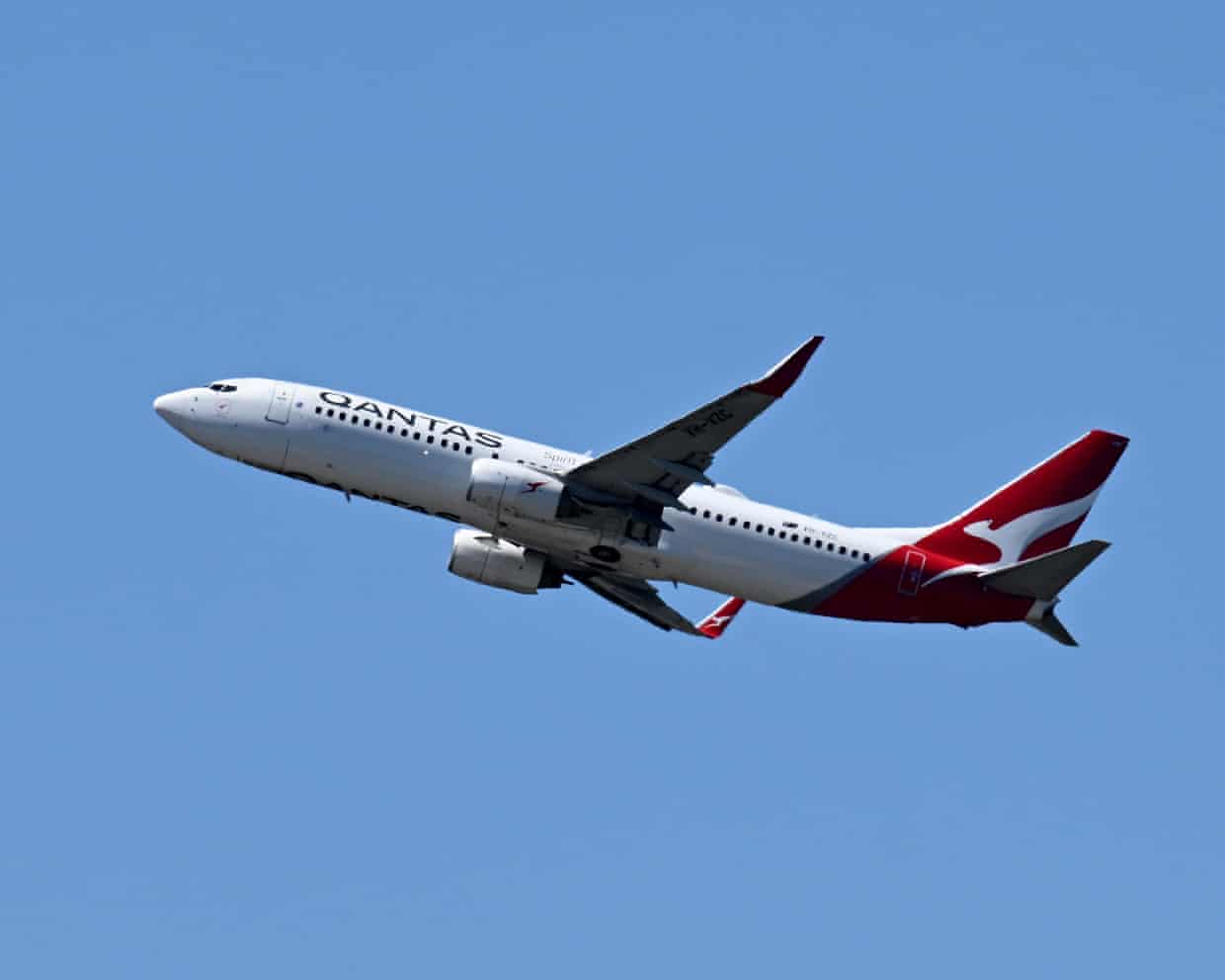
Knee-jerk corporate responses to data leaks protect brands like Qantas — but consumers are getting screwed
It’s become the playbook for big Australian companies that have customer data stolen in a cyber-attack: call in the lawyers and get a court to block anyone from accessing it.Qantas ran it after suffering a major cybersecurity attack that accessed the frequent flyer details of 5 million customers.The airline joined the long list of companies in Australia, dating back to the HWL Ebsworth breach in 2023, to go to the New South Wals supreme court to obtain an injunction against “persons unknown” – banning the hackers (and anyone else) from accessing or using the data under threat of prosecution.Of course, it didn’t stop hackers leaking the customer data on the dark web a few months later.But it might have come as a surprise when the ID protection company Equifax this month began alerting Qantas customers that their data had been leaked – since access to the data was supposedly banned

Ducking annoying: why has iPhone’s autocorrect function gone haywire?
Don’t worry, you’re not going mad.If you feel the autocorrect on your iPhone has gone haywire recently – inexplicably correcting words such as “come” to “coke” and “winter” to “w Inter” – then you are not the only one.Judging by comments online, hundreds of internet sleuths feel the same way, with some fearing it will never be solved.Apple released its latest operating system, iOS 26, in September. About a month later, conspiracy theories abound, and a video purporting to show an iPhone keyboard changing a user’s spelling of the word “thumb” to “thjmb” has racked up more than 9m views
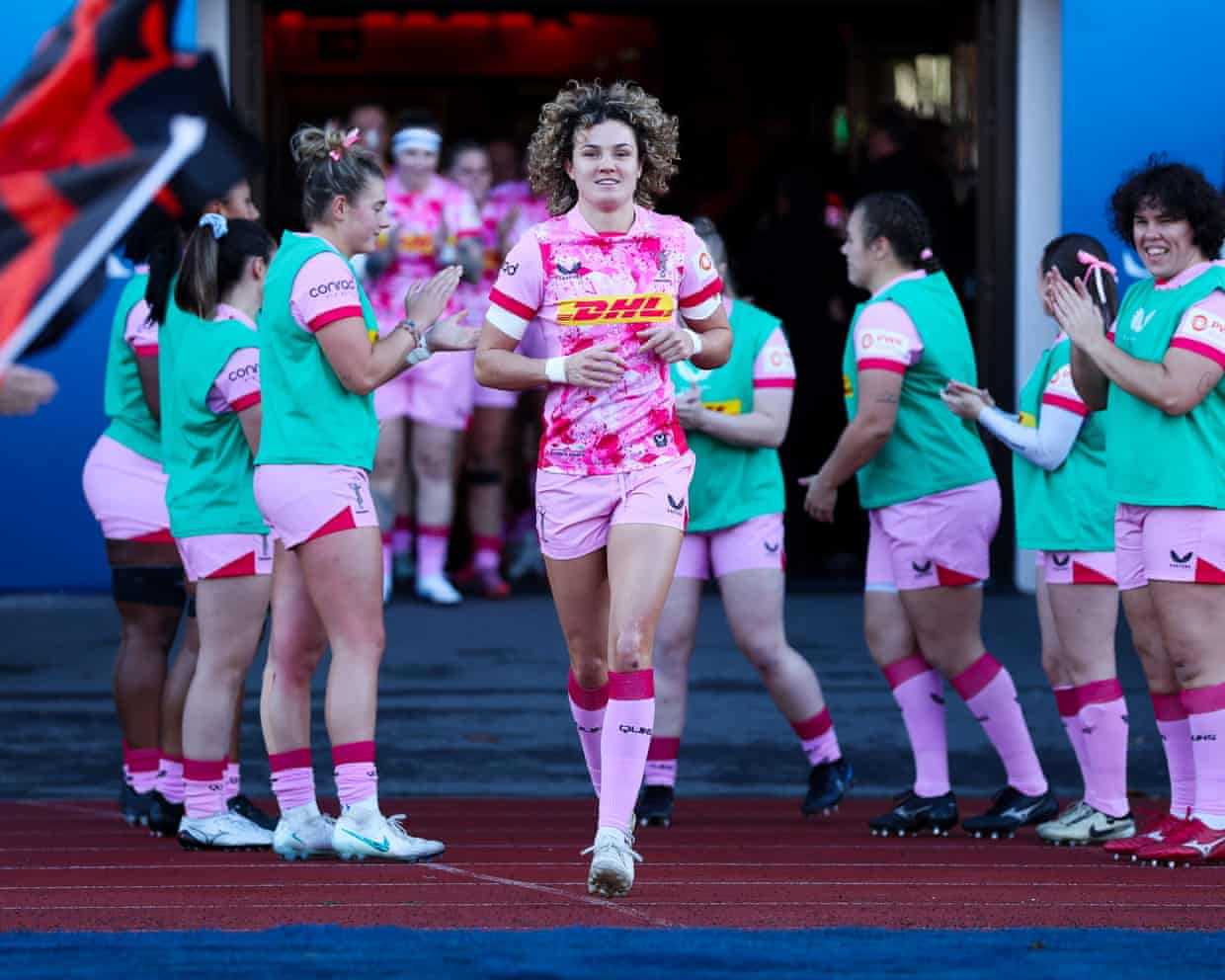
Saracens Women enjoy World Cup bounce with record crowd for derby
If fans had been told at the start of the day to predict which Canada international would be the star of the Premiership Women’s Rugby London derby, most would have picked out Sophie de Goede. The versatile world player of the year is in incredible form, after her starring role in Canada’s run to the Rugby World Cup final just over a month ago, but she did not have the chance to live up to those hypothetical expectations as she failed a fitness test a few hours before kick-off.Such is the Canadian presence at Saracens, though, that another Canuck stood out, with the wing Alysha Corrigan at the heart of the north London club winning 47-10 against Harlequins in this fierce rivalry in front of a record 3,733 spectators.Corrigan produced not only two skilful tries but she was also able to beat several defenders throughout the encounter and had defensive prowess which marked her out at a sunny but cold StoneX Stadium. Canadian flair was on display throughout, with Olivia Apps also an electric presence and Laetitia Royer impressing on her debut

Coco Gauff’s serving troubles return in WTA Finals defeat against Pegula
Coco Gauff’s serving woes followed her into the final week of the season, as the American’s title defence at the WTA Finals in Riyadh began with a bruising 6-3, 6-7 (4), 6-2 loss to her compatriot Jessica Pegula in their first match of the group stages.Despite fighting hard and remaining competitive until the end, the third seed simply could not overcome her 17 double faults against an in-form Pegula, the fifth seed, who maintained her composure after getting pulled into a final set by her struggling opponent, and saved her best level for the closing stretch of the match.Pegula’s victory could prove to be an important win in the Stefanie Graf group, with Aryna Sabalenka looming and favoured to advance. Earlier on Sunday, the world No 1 opened her tournament with a confident 6-3, 6-1 win over Jasmine Paolini, the eighth seed. The victory was Sabalenka’s 60th of the season, the first time she has achieved this milestone

Womad festival returns and moves to new Wiltshire site

Seth Meyers on Trump’s South Korea visit: ‘Getting the royal treatment he so desperately craves’

A third of people in England believe in ghosts, survey finds

Arts organisations still in ‘funding limbo’ after crash of Arts Council England online portal

Jimmy Kimmel on government shutdown: ‘There is no Republican plan for healthcare’
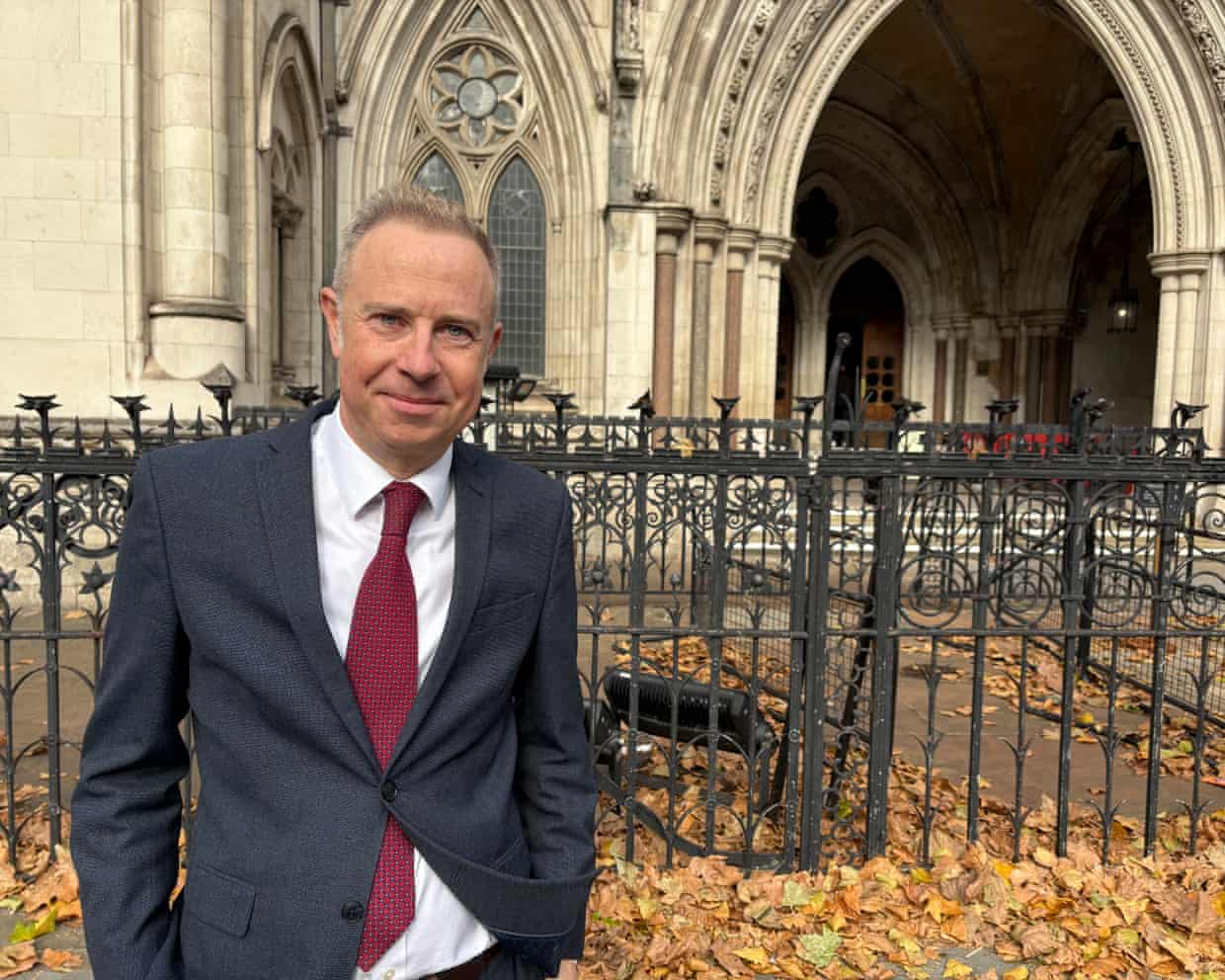
Man who won damages over Richard III film calls for more regulation of fact-based drama